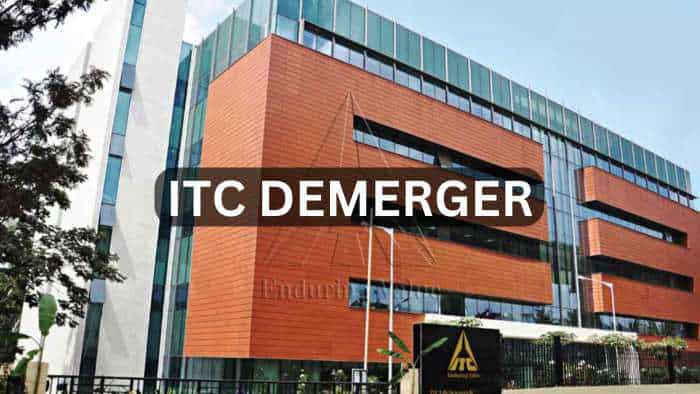Term Loan vs Overdraft: What are they, and which of them can be a better option?
A term loan is a fixed-amount loan with a fixed repayment schedule that you take from a bank, non-banking finance company (NBFC), or any financial institution. In a term loan, the interest is calculated on the entire loan amount, while in overdraft, the interest is calculated only on the amount you withdraw from the OD.
)
Term Loan vs Oerdraft: When you need money in large proportions to fullfil your emergency needs, what do you do?
You dip into your savings.
But if you don't have substantial savings, you approach a family member, a relative, or a friend.
But if they don't have money to give, or, if their financial condition doesn't allow them to lend you money for the long term? Then you approach a lender, who can be your helping hand in times of financial need.
When you go to a lender to lend money, there are mainly two types of choices that you have: a term loan and an overdraft (OD). In this write-up, ZeeBiz will tell you the difference between a term loan and an overdraft, and which is a better option in the short term and the long duration.
What is a term loan?
A term loan is a fixed-amount loan with a fixed repayment schedule that you take from a bank, non-banking finance company (NBFC), or any financial institution.
The interest rate and the repayment schedule are set at the beginning of the loan.
In some cases, such as a floating interest home loan, the rate of interest may also change as per bank policies and the repo rate.
In a term loan, you repay the loan in the form of monthly equated installments (EMIs) with interest and the principal.
The lender charges interest on the principal amount.
So, if you keep the EMI high at the beginning of the loan, you have to pay less overall interest compared to when you keep your EMI low.
The lender can keep the duration of the term loan anywhere from 5 to 20 years or more. The interest is calculated on a monthly basis.
Types of term loan
Secured Loan
Unsecured Loan
Secured Loan
A secured loan has collateral, where you keep some mortgage with the lender.
It often comes with a lower interest rate than an unsecured loan.
If you fail to repay this, the lender can keep your mortgage.
Home loans, commercial vehicle loans, and car loans are some examples of secured loans.
Unsecured loan
It doesn't have collateral and often comes at a high interest rate.
The lender checks one's Cibil score, credit history, and financial habits before sanctioning an unsecured loan.
Personal loans, credit cards, education loans, and business loans are some examples of unsecured loans.
What is an overdraft?
An overdraft is also a type of loan offered to salaried individuals, business owners, companies, etc., with a savings or a current account.
Here, the lender gives you a certain limit of credit, which you can use as per your requirements.
Differences between term loan and overdraft
It is different from a term loan as the interest is calculated only on the amount you withdraw from the OD, while in a term loan, the interest is calculated on the entire amount.
E.g., if you have a Rs 20 lakh term loan for 5 years, the interest that you will pay every month will be calculated on the entire loan amount.
On the other hand, if you have Rs 10 lakh OD with you and you use only Rs 1 lakh from that, you will be charged interest only on Rs 1 lakh.
Another major difference between the two is that while the interest is calculated on a term loan on a monthly basis, the borrowers pay the interest on a daily basis in an OD.
Interest in an OD is often quite high compared to term loan interest.
While the lender can give a personal loan for 5 to 20 years or more, OD is given for short durations, like one to six years.
As far as tax exemption is concerned, a borrower may get that in term loans like a home loan and an education loan.
But no tax exemption is given for the repayment of OD.
In a term loan, the lender takes time to disburse the loan, but the OD can be given in a few hours.
While the repayment in a term loan is done on a monthly basis through EMIs, one can repay an overdraft loan in one go or multiple times.
Term Loan vs Overdraft: Which is a better option?
While there is no direct comparison between the two, it always depends on the amount and duration.
If you need a large amount to purchase a home, pursue education, or buy a car, a term loan can be better as it can be given for a long duration and the interest is lower than an overdraft.
But if your money requirement is not very high and you need money for a shorter duration, OD can be a better option.
Get Latest Business News, Stock Market Updates and Videos; Check your tax outgo through Income Tax Calculator and save money through our Personal Finance coverage. Check Business Breaking News Live on Zee Business Twitter and Facebook. Subscribe on YouTube.
RECOMMENDED STORIES

Top 7 Mutual Funds With Highest SIP Returns in 1 Year: Rs 33,333 monthly SIP investment in No. 1 scheme has generated Rs 4.77 lakh; know about others too

Rs 4,000 Monthly SIP for 33 years vs Rs 40,000 Monthly SIP for 15 Years: Which can give you higher corpus in long term? See calculations

SBI 444-day FD vs PNB 400-day FD: Here's what general and senior citizens will get in maturity on Rs 3.5 lakh and 7 lakh investments in special FDs?

Rs 55 lakh Home Loan vs Rs 55 lakh SIP investment: Which can be faster route to arrange money for Rs 61 lakh home? Know here

Top 7 Mid Cap Mutual Funds With Highest SIP Returns in 10 Years: Rs 13,333 monthly SIP investment in No. 1 fund is now worth Rs 67,61,971
05:01 PM IST










 Overdraft vs Personal Loan: Check when OD could be a better option
Overdraft vs Personal Loan: Check when OD could be a better option